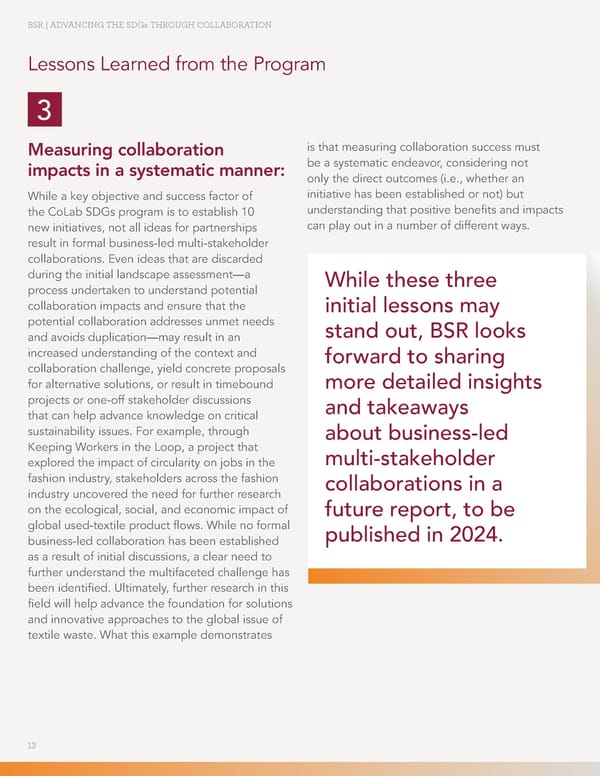BSR | ADVANCING THE SDGs THROUGH COLLABORATION Lessons Learned from the Program 3 Measuring collaboration is that measuring collaboration success must impacts in a systematic manner: be a systematic endeavor, considering not only the direct outcomes (i.e., whether an While a key objective and success factor of initiative has been established or not) but the CoLab SDGs program is to establish 10 understanding that positive bene昀椀ts and impacts new initiatives, not all ideas for partnerships can play out in a number of different ways. result in formal business-led multi-stakeholder collaborations. Even ideas that are discarded during the initial landscape assessment—a While these three process undertaken to understand potential collaboration impacts and ensure that the initial lessons may potential collaboration addresses unmet needs stand out, BSR looks and avoids duplication—may result in an increased understanding of the context and forward to sharing collaboration challenge, yield concrete proposals for alternative solutions, or result in timebound more detailed insights projects or one-off stakeholder discussions and takeaways that can help advance knowledge on critical sustainability issues. For example, through about business-led Keeping Workers in the Loop, a project that multi-stakeholder explored the impact of circularity on jobs in the fashion industry, stakeholders across the fashion collaborations in a industry uncovered the need for further research on the ecological, social, and economic impact of future report, to be global used-textile product 昀氀ows. While no formal published in 2024. business-led collaboration has been established as a result of initial discussions, a clear need to further understand the multifaceted challenge has been identi昀椀ed. Ultimately, further research in this 昀椀eld will help advance the foundation for solutions and innovative approaches to the global issue of textile waste. What this example demonstrates 13
 Advancing the SDGs through Collaboration Page 12 Page 14
Advancing the SDGs through Collaboration Page 12 Page 14